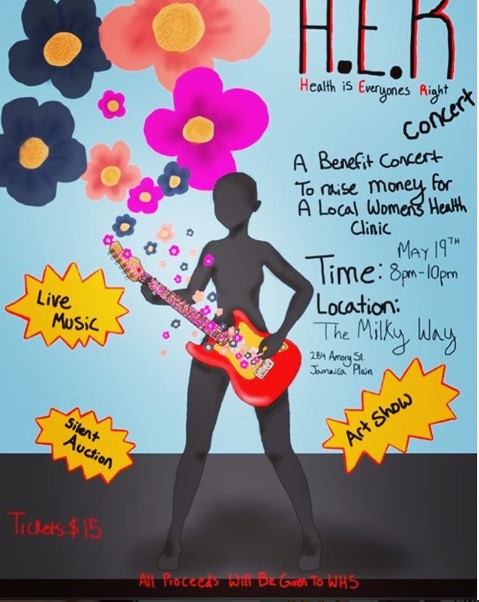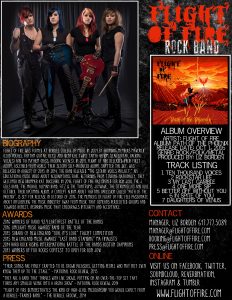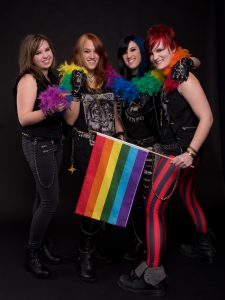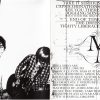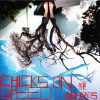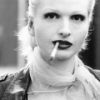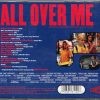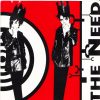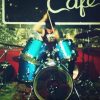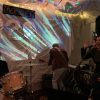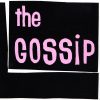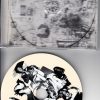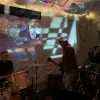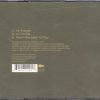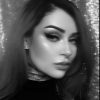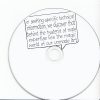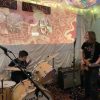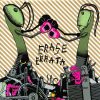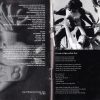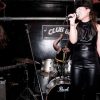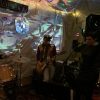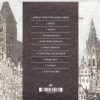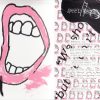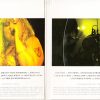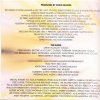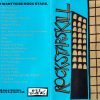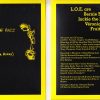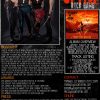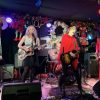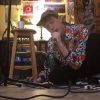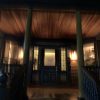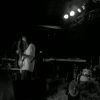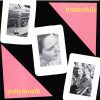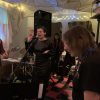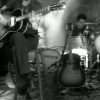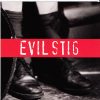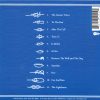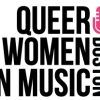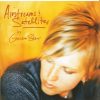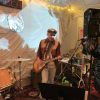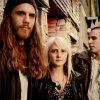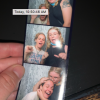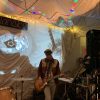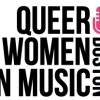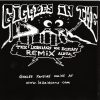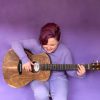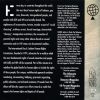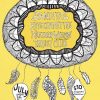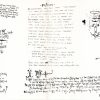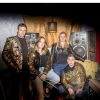Pitstain is a queer & feminist punk trio born in Boston, MA. Jules Ozone, on bass and vocals, loves melodic, spotlight-stealing basslines and distorted screaming blended with legitimate singing. Kelly Baker, on drums and vocals, is committed to a DIY ethos and writing heavy-handed lyrics about politics. Kathleen Silver, on guitar and backup vocals, combines meticulous riffs with fuzzy power chords. Imagine if Kim Deal, Meg White and Julia Kugel formed a band. In Boston. And were all super queer and wrote songs about the grind of everyday capitalism, mental health, and being hit on without your consent. The members of Pitstain met through volunteering at Girls Rock Campaign Boston, a feminist organization that empowers youth to make noise and take up space through music education. Self-described “polite punks,” the band members write all of their songs collaboratively and value respect and connection above all else in creative endeavors.
QWIMB Q&A With Pitstain
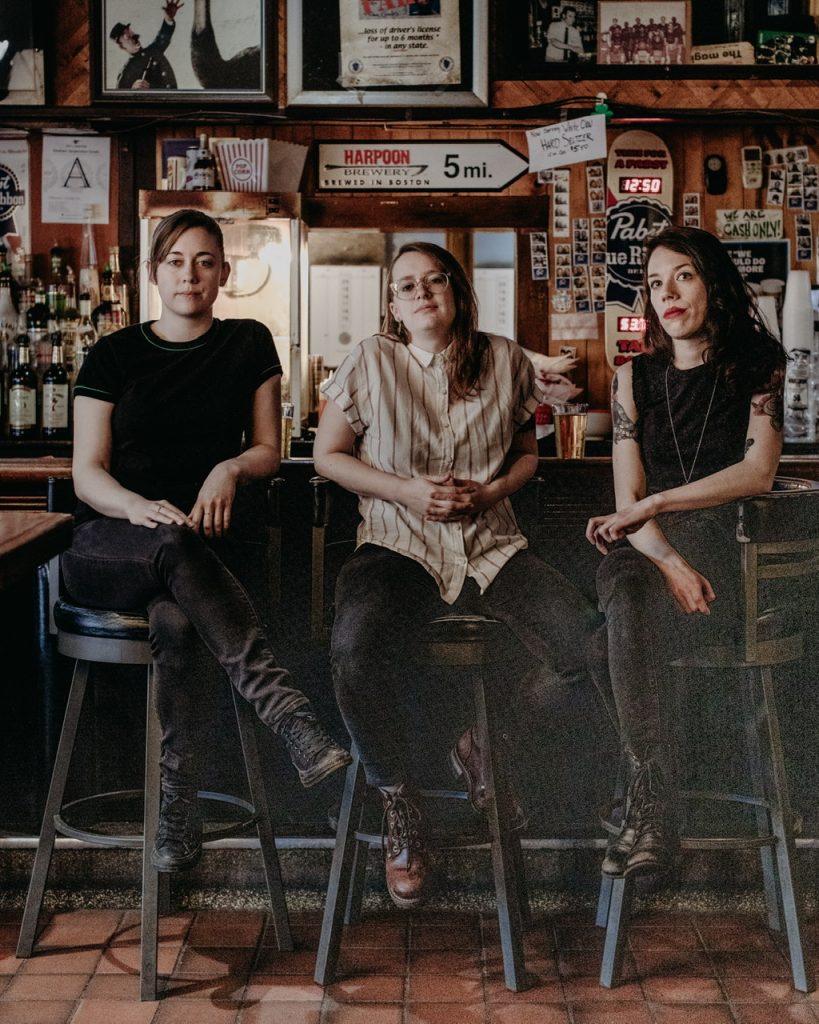
What brought you to Boston?
Jules: I originally moved to Boston for a relationship (0/10 would not recommend), but stayed to attend grad school for mental health counseling. I’m so happy now that I came here because it introduced me to an incredible community of musicians and friends.
Kathleen: I also moved here for grad school and part of why I chose my program is because of the location!
Kelly: I’m the outlier — I was born and raised in Boston.
Have you experienced a strong scene for Queer women in the city in terms of music/performers etc?
Jules: Most of my community comes from Girls Rock Campaign Boston, a community that is made up of many queer women and folks with other marginalized gender identities. I feel so lucky to be surrounded by so many people who share my identity, but outside of GRCB I can’t think of any queer women performers who I’ve met in the recent past.
Kathleen: Sadly, grad school demands have kept me from exploring the queer scene in Boston as much as I’d like. Most of my friends here are queer and/or musicians, but that’s probably a sampling bias on my part.
Kelly: When I was in my early twenties, almost a decade ago now, I was pretty heavily into the DIY punk scene in Boston — going to shows in Allston basements and all that. It was a super male dominated space. I felt unwelcome as a queer woman. It kind of chewed me up and spit me out. I didn’t go to local shows for a number of years because it was so triggering. I’ve gotten back into it again and have been so stoked to see how many queer, female, and/or POC folks are creating their own punk spaces and rewriting the narrative of who is centered in DIY spaces. I’m excited to contribute to it now.
Do you have any sense of a history of a Queer scene in the city?
Jules: I don’t at all. I just came here several years ago. According to my partner, Jamaica Plain used to have a thriving queer scene which diminished once rent skyrocketed in that area.
Kathleen: I really don’t but I’d love to learn more!
Kelly: Damn. This question really hit me hard… this is my hometown and I have no idea. That’s why QWIMB is so important — we have to archive & share & talk about queer stories.
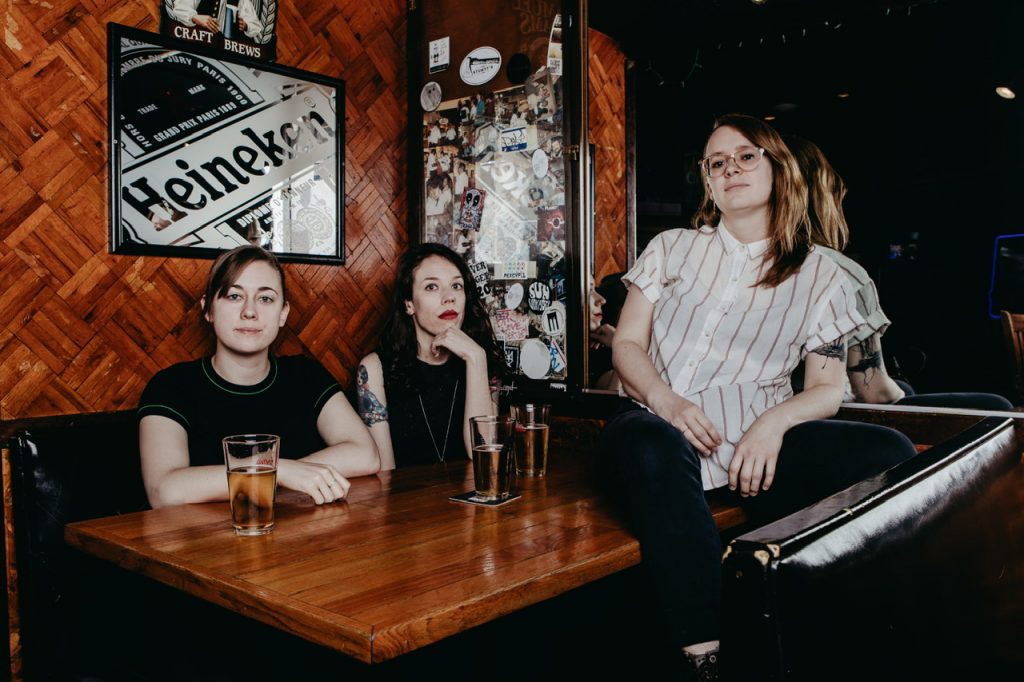
What made you decide to join a band?
Jules: I love playing music as an act of self-care, and I love collaborating with people who share my creative aspirations and worldviews. I’ve spent some time making music on my own but playing regularly with friends keeps me accountable and motivated to keep playing!
Kathleen: I’ve been playing guitar since middle school but always either in jazz band or by myself in my basement. I basically handed my best friend a bass and some No Doubt tabs and convinced her to learn so we could play together. We formed a band with our other good friend who is a drummer and after that experience, I didn’t look back! I have played in various bands since then but had a lull period for a few years, so I was SO excited to join Pitstain.
Kelly: It was a lifelong dream. But it felt super out of reach. By my late twenties, I honestly thought I was too old to learn an instrument. In 2017, on a whim, I attended Ladies Rock Camp and that blew my mind. I started teaching myself to play drums, joined this band, and here we are.
Are there any artists that you look up to or who have inspired your own music?
Jules: I started playing bass because I wanted to learn Kim Deal’s basslines from when she played with Pixies. I also draw a lot of inspiration from Kathleen Hanna; she describes her voice as “a bullet” shooting towards an imaginary target, and I think of my own voice in that way when I’m screaming lyrics at the top of my lungs.
Kathleen: So so so many, whether they’re an inspiration for their guitar, lyrics, general attitude, or all of the above. Some all-stars are Joan Jett, Debbie Harry, Shirley Manson, Emily Haines, Marissa Paternoster, and so many more.
Kelly: So many. I love listening to shit that blows up the idea of what a woman should sound like — you know, pretty and soft and shit. I get a lot of vocal inspiration from Brody Dalle (The Distillers), Stephanie Luke (Coathangers) and Marissa Paternoster (Screaming Females), for example.
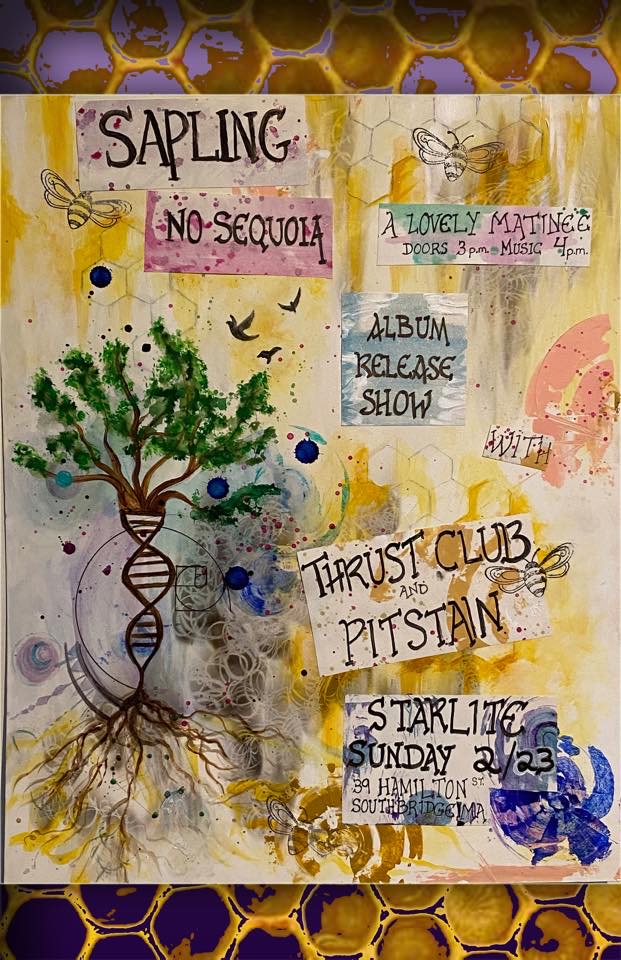
Do think things are getting better for Queer performers or are there still barriers to overcome?
Jules: Both! It seems like it has become more acceptable/celebrated to be openly queer as a musician over time, at the same pace at is has become more accepted in general society. Most of the bands I listen to, I listen to in part because they have queer members. I also see ways in which queer performers are held to higher standards than their straight counterparts, such as the queer band PWR BTTM being removed from all streaming services following abuse allegations while mainstream cis male performers continue making music despite numerous accusers coming forward for the same thing.
Kathleen: What Jules said.
Kelly: Yeah, I think it’s still highly contextual. We seek out venues that are demonstrably queer friendly, we only book gigs with bands that we know (or know of) and have a good feeling about. That’s intentional. And it also feels like I’m in a cozy safe bubble of my own choosing. I think there’s a lot of privilege to that — as three white cis-women. There are lots of BIPOC artists and performers who might experience racism at some of the same venues that I probably consider “safe” or “good.” That’s a blind spot for sure. I look to organizations like BAMS Fest who are doing some dope artist organizing to carve out space for QTPOC folks in the Boston music scene.
What has been your proudest moment as a member of a band or as a musician in general?
Jules: I’m so proud of how our band writes music collaboratively and base all of our process and aesthetic on mutual respect and love for one another. I would not want to embark on any creative endeavor that didn’t double as an interpersonal bond with my creative partners. It is sometimes hard to maintain these values as stress and creative differences occasionally come up, but we stick to them regardless.
Kathleen: This was a long time ago, but I remember playing a show at this bar all the way back in high school with some other bands who were all dudes. I think it was my first show that was actually in “public” even though basically nobody came. I was setting up in the back and the manager forcibly grabbed my shoulder and was like, “No girlfriends allowed backstage.” It was immensely satisfying to shove his hand off me and show him my fist (marked B for band). That memory has stuck with me for over a decade.
Kelly: Oh my god, Kathleen, that’s the worst. Your response, though! Badass. For me, my proudest moment is just getting up on stage and doing it. It’s incredibly vulnerable and nerve-wracking and exhilarating, every time.
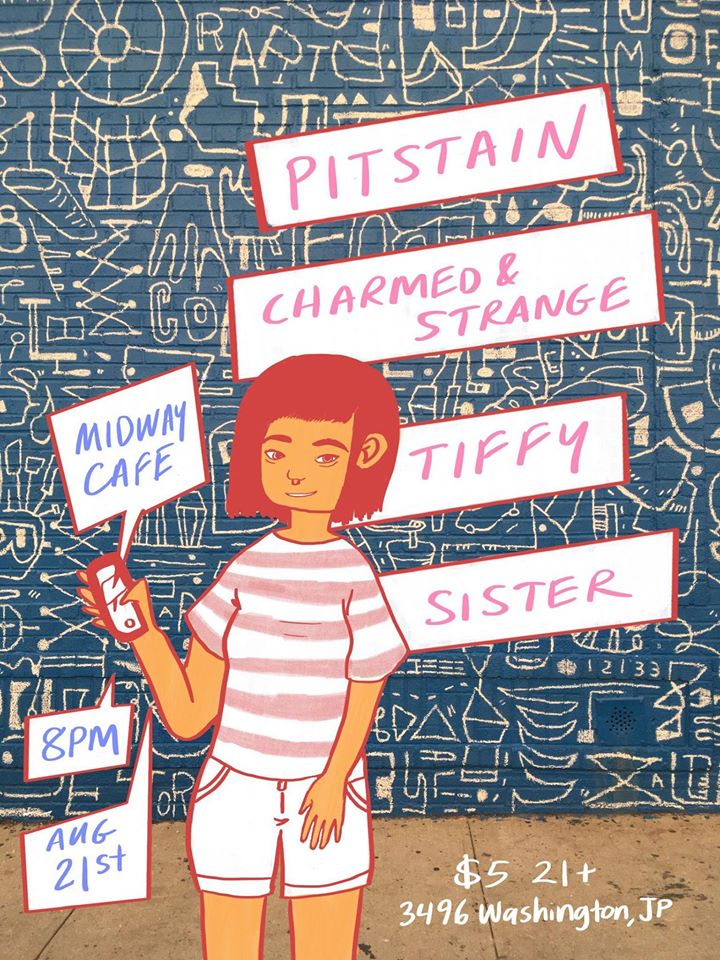
What advice would you give to a woman thinking about starting a band or learning an instrument?
Jules: Start out learning on your own! I think that many women/girls who want to play music feel that they need to be taught by a professional in order to learn the “right” way to play, and those professionals are often male musicians who teach in a didactic and intimidating way that does not always align with how people learn. Also, as women, we are socialized to be ashamed of any creative mistakes we make, which prevents us from learning because mistakes are so integral to gaining mastery. If you rock out alone in your room, you can make as many mistakes as you want and not feel judged by whatever bro thinks he’s been tasked with teaching you the “right” way to play.
Kathleen: Do it! Also, practice, practice, practice. It might take longer than you hope to get where you want to be but that just means you have more time to have fun getting to know your instrument. Practice for the process, not necessarily the outcome.
Kelly: You are not too old. Like, seriously, 65 is not too old. Or 30. Or 92. Or 15. The age you are now is the perfect age to pick up an instrument. There’s this obsession in our culture with doing things on a timeline. And that’s the least punk thing I can think of. Just go for it. Be sloppy, make mistakes, get weird with it.
Are there any other current or former bands or solo artists you would like to see featured by QWIMB?
Yes so many like: Palehound, Sidney Gish, and Oompa.
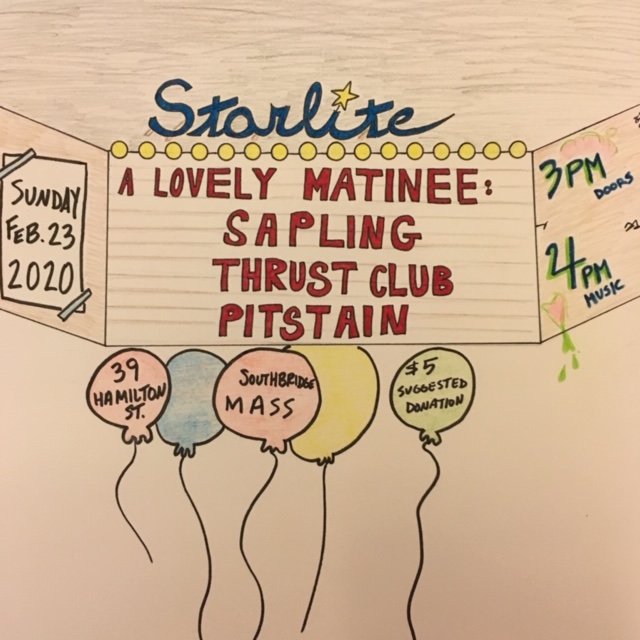
Social Media Links:
Instagram: @pitstainband
Facebook: https://www.facebook.com/pitstainband/
